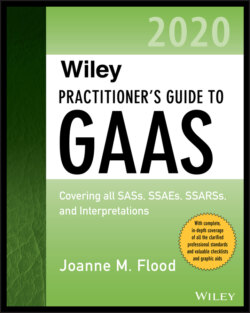Читать книгу Wiley Practitioner's Guide to GAAS 2020 - Joanne M. Flood - Страница 19
Professional Skepticism
ОглавлениеThe auditor should also exercise professional skepticism, that is, an attitude that includes a questioning mind and a critical assessment of audit evidence.
In practice, this means that auditors should be alert for:
Contradictory evidence,
Indications of fraud,
Unusual circumstances and those that suggest the need for additional audit procedures,
Evidence that calls into question the reliability of documents and responses to inquiries,
The possibility of collusion when performing the audit, and
How management may override controls in a way that would make the fraud particularly difficult to detect.
(AU-C 200.A22–A.23)
However, the auditor is not an insurer, and the audit report does not constitute a guarantee. It is based on reasonable assurance. Thus, it is possible that an audit conducted in accordance with GAAS may not detect a material misstatement.
